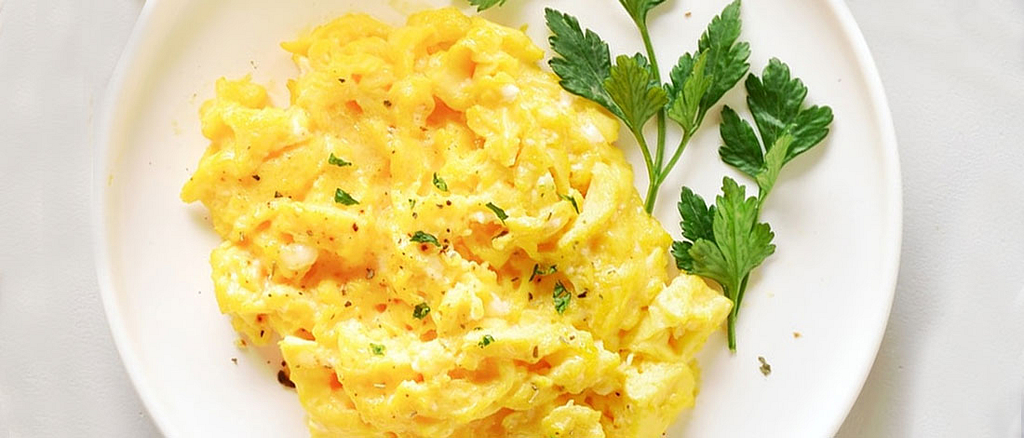A lot of people struggle with the idea of stopping eating meat with a vegan diet, but I think stopping eating eggs is a little harder.
It’s in your breakfast, cakes, brownies, and other delicious food products.
The easiest trick for people to introduce eggs into your plant diet is by changing the way you cook at home. I’m going to show you how to make vegan eggs and what products I like to use for cooking.
What Are Vegan Eggs?
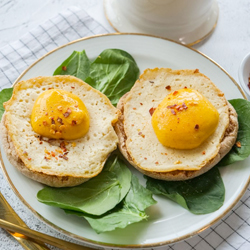
Vegan eggs are a replacement for real eggs. Yes, the ones from chickens (see also ‘11 Best-tasting Vegan Chicken Nugget Brands‘) . There are a few different ways to replace regular eggs. There’s no right answer for which vegan option is best because recipes can change different texture, consistency, and taste.
It can also depend on why you need to replace chicken version.
If you need them for baking, then you might choose a vegan egg recipe over different plant-based products.
Let’s discuss what egg options vegans can use in the kitchen and when is the right time to use them (No egg carton needed)
What Are Popular Vegan Egg Substitutes?
1. Just Egg
If you’re looking to save time, then I use the Just Egg package. It’s a plant-based, ready-made egg scramble.
I decided to try it when I noticed Michelin-starred chefs created it. So you know it has to taste good.
I like it because I made it with a lot of snacks like waffles, omelets, fried rice, and French toast. Even Pad Thai can easily be made with this.
It scrambles just like eggs, and I barely notice a difference.
I was also happy that it was dairy-free, cholesterol-free, and had no GMO products.
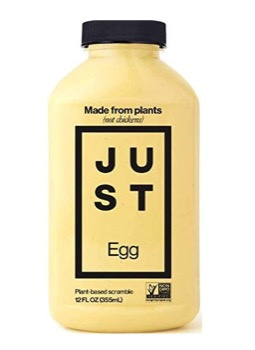
Watch the video below for Just Egg review..
2. Flax meal
A popular plant-based egg replacement for vegans is the flax egg. The directions are simple because you only need two ingredients-flaxseed and water.
There are a few different procedures online with different ratios. You might want to experiment with which one you like better.
For me, I use 1 tablespoon of flaxseed meal powder and 3 tablespoons of liquid to make 1 “egg.” Blend it together and put it in the fridge for 15-30 minutes or until it thickens like a raw egg. It only takes a little bit of time to make.
It’s better for baking (see also our article on Crisco), in my opinion.
3. Chia seeds
If flaxseed meal isn’t your thing, you can also use chia seeds.
Chia seeds are more likely to be in your pantry anyway if you are health-conscious.
It has a similar recipe and instructions as flaxseed eggs.
One chia seed egg is made by using 1 tablespoon of chia seeds and 3 tablespoons of water.
Whisk and let it sit until it thickens to a similar texture of raw eggs (usually five minutes).
It takes less time than flaxseed eggs, so it’s better if you’re short on time.It’s an excellent option for pancakes (see also ‘Can Pancakes And Waffles Be Vegan?‘), cookies, and other baked goods.
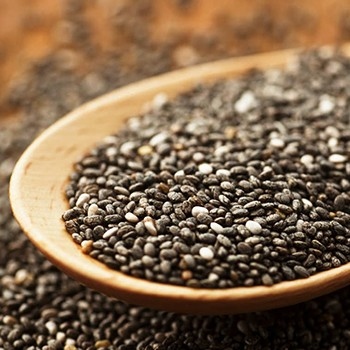
4. Applesauce
Applesauce is another choice to use as vegan eggs (Sustainable body care choices). It’s a great choice if you are looking to add a little moisture to your recipes.
If you want to replace a single egg serving, then use ¼ cup of applesauce. I had a friend recommend adding ½ teaspoon of baking powder to give your baked good a light fluff.
Applesauce also has some unique essence to it, so you want to be sure it’s made to be compatible with what you’re making. You’ll also want to consider if your applesauce is sweetened or unsweetened. Sweetened applesauce can make your dish too sweet.
5. Banana
Bananas are indisputably healthy for you, and they are easily made into vegan eggs. It contains a lot of nutrients like fiber, potassium, vitamin B6, vitamin C, and more [1].
One mashed banana (about ¼ cup) equals one serving. I like to use this when I’m making pancakes.
Just like the other previous choices, it’s an excellent choice for cakes or muffins.
Based on personal experience, it can make your food smell pretty good if you are looking for a hint of banana.
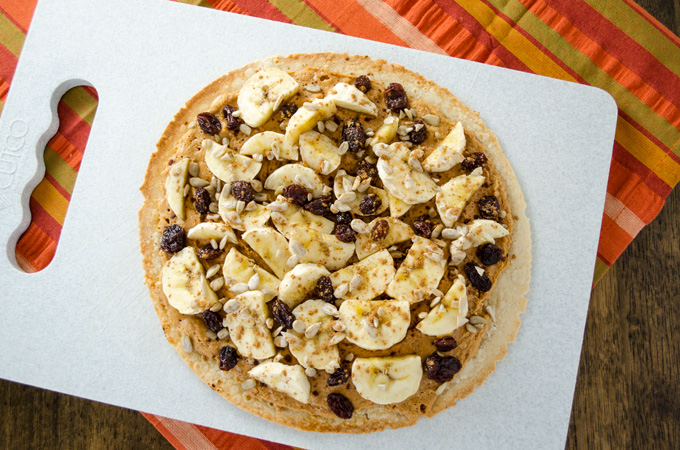
6. Tofu
Vegans love tofu. I sometimes use tofu when my recipe calls for more than two or three eggs.
Silken tofu is usually cooked in foods like quiches or custards. It’s a binder, which means it keeps ingredients together. ¼ cup of silken tofu is enough to replace a single serving.
I make my tofu scramble with firm tofu. They do take more time to make, but you might get more flavor, smell, and taste.
What Is Our Vegan Egg Substitute Recommendation?

All of these are excellent chicken alternatives, but I’m a fan of the Just Egg.
It’s super simple to make the plant-based scrambled eggs that everyone knows and loves.
When I first wake-up in the morning, I’m not usually in the mood to do a lot in the kitchen. So pouring out the Just Egg mixture wins me over every time. It also tastes great on its own, which saves me even more time since I don’t have to add as many spices.
What Ingredients Are In Just Egg?
I’m a huge believer in reading the label of foods. I like the reassurance that I’m eating eggs that only have good things. Let’s break down the top 5 ingredients this product have on their packaging.
- Water: I was surprised that the highest amount of ingredients in Just Egg was water. I was expecting the next ingredient to have a more prominent dominance on the list. It makes sense, though, since the mix is pretty watery.
- Mung Beans Protein Isolate: The beans ingredient gives the egg-like quality when scrambled. It’s also packed with a ton of nutrients. They have essential amino acids like leucine, isoleucine, and more [2]. It’s excellent for building protein.
- Expeller-Pressed Canola Oil: Canola oil has conflicting studies on if it’s good for your health. But I think it’s important to realize that it’s expeller-pressed. It means that the oil was physically squeezed out of the seed with no chemical use. The lack of chemicals suggests that maybe this version of canola oil is healthier for foods.
- checkDehydrated Onion: Onion gives the eggs a savory tang. There’s not much against onions except the possibility of bad breath.
- checkGellan Gum: This is the vegan alternative to gelatin, (see Vegan Chicken). It helps bind and texturize foods. I couldn’t find any significant study to suggest this was harmful.

It also contains other ingredients like carrots, turmeric, and salt for taste. And, it’s cholesterol free and non-GMO, if that helps.
Does It Taste Like Chicken Eggs?
I thought it tasted like real eggs. For the purpose of this vegan egg review, I made scrambled eggs, omelets, and even used it for my French toast.
Surprisingly, the smoothness and taste are what I would expect from regular eggs.
I was worried that the watery mixture would lead to being tasteless, but that wasn’t the case. Thanks to the seasoning, I still got an excellent taste.
I was also concerned that it wouldn’t cook well because it’s watery, but it cooked quite well. I made them taste more authentic by adding a little black salt and pepper to my plate.
I was curious if anyone had tried it for baking, so I did some research online. I couldn’t find anyone who used it as a replacement for eggs in baking. So I wouldn’t try it because it probably doesn’t work like an active ingredient.
What Is The Nutritional Value of Just Egg vs. Regular Eggs?

Real Eggs
- Calories: 70
- checkTotal Fat: 5g
- checkCholesterol: 186g
- Sodium: 75mg
- Protein: 6g
Just Egg
- Calories: 70
- checkTotal Fat: 5g
- checkCholesterol: 0g
- Sodium:160mg
- Protein: 5g
The numbers are pretty similar with both except chicken eggs have more cholesterol and sodium. But it also has more nutrients.
It has nutrients like vitamin D, vitamin B12, choline, and antioxidants that aren’t in Just Egg. Real eggs have slightly more protein too.
Not enough protein (for runners) to make a huge difference, but it’s there.
You could easily replace those in other areas of your nutrition or by using supplements. This alternative product is still a good option to get your plant proteins if you are vegan or allergic to eggs.
Regular eggs and Just Egg are pretty similar
Natalie Rizzo
M.S., R.D.
Are There Any Downsides to Using Vegan Eggs?
There are few downsides to using vegan “eggs”.
The most common complaint with Just Egg is that it’s pretty expensive. Free-range eggs are cheaper to eat. If you’re not on a vegan diet or have allergies to eggs, then it doesn’t make a lot of financial sense to use this product.
The other plant-based eggs mentioned are more affordable options. It may also offer more nutrition, but you might miss out on the nutrition you get from regular eggs. I was pleasantly surprised that protein isn’t one of these.
It also doesn’t provide the same smoothness like eggs, and it won’t create the same smoothness as a regular scramble.

Finally, you might find vegan eggs in baking to be a vast experiment. You might have to try a few different vegan eggs to discover what gives you similar textures to the ones using a chicken egg. Eggs act to emulsify and stabilize the batter — sadly, replacements do not have this ability to be used for baking.
Conclusion
There are many different ways to replace eggs with vegan alternatives. From bananas to flaxseed, you’ll have to experiment to see which plant source is better.
These egg replacements may change the texture and taste of what you are making, so make sure to choose what works for your specific recipe.
My personal tip: always read product reviews online before trying something out.
When I want to make traditional scrambled eggs, I use Just Egg.
I don’t feel like I’m missing out on regular scrambled eggs because it’s like I have the same experience. It has the same smoothness, and I love adding a dash of spice to max out the zest.
If you’re a vegan interested in trying out Just Egg, then reach out and let me know what you think!

- Why is My Poop Black: Uncovering the Causes and Solutions - December 21, 2023
- Clear Protein Drinks: Optimal Hydration and Muscle Support for Athletes and Fitness Enthusiasts - December 21, 2023
- Does Apple Juice Make You Poop: Uncovering the Digestive Effects - November 29, 2023

